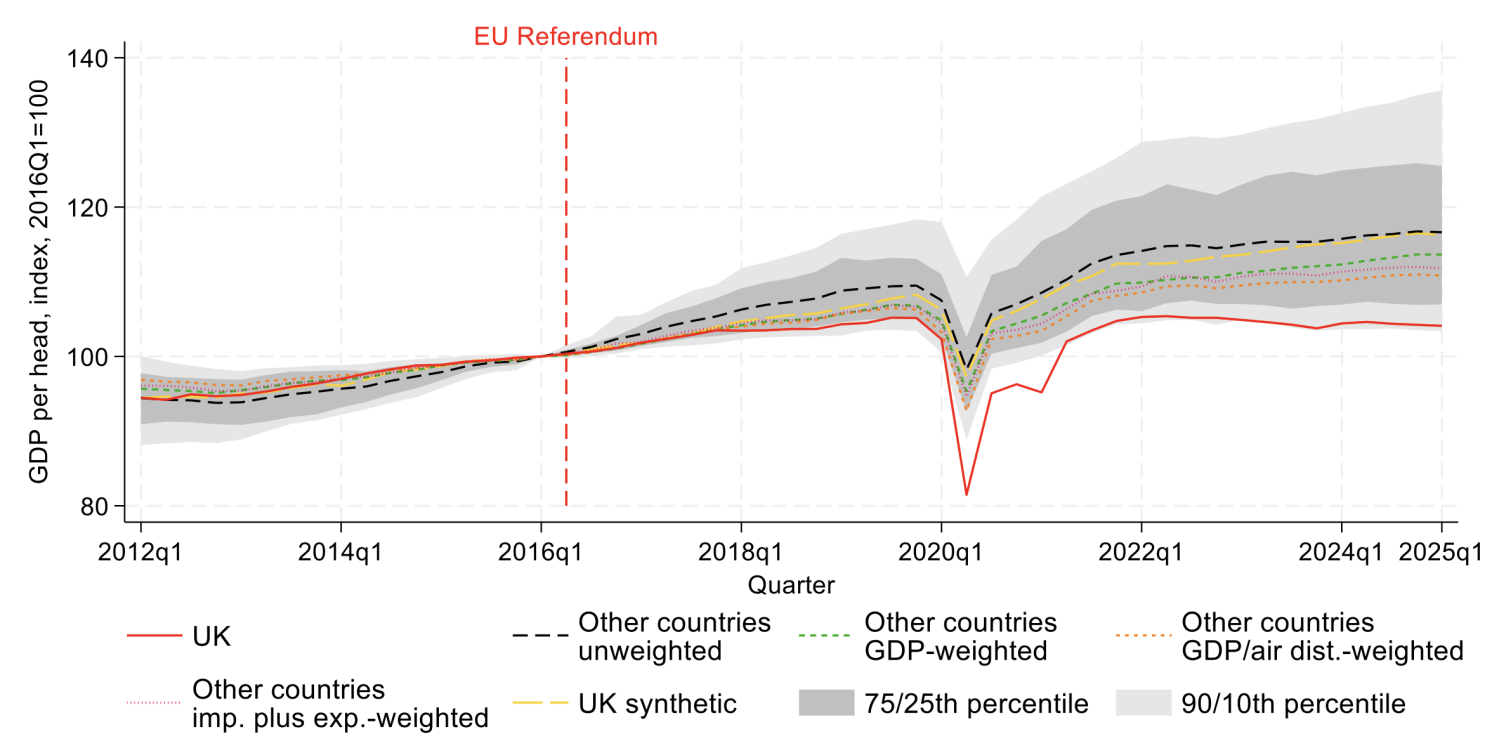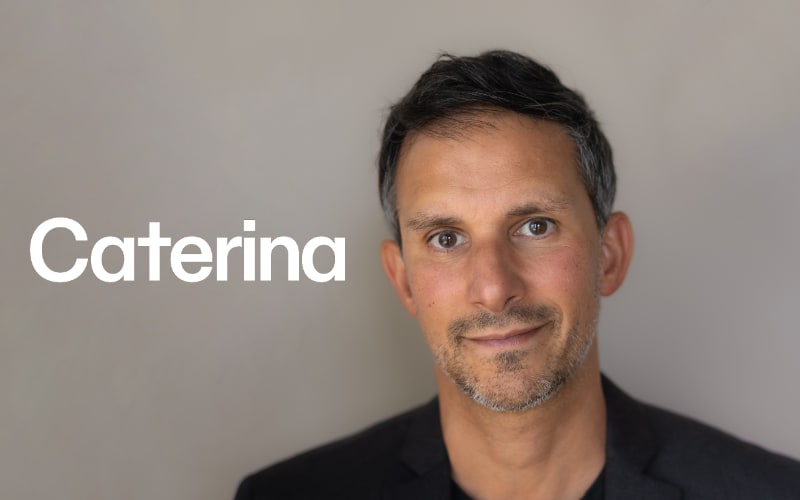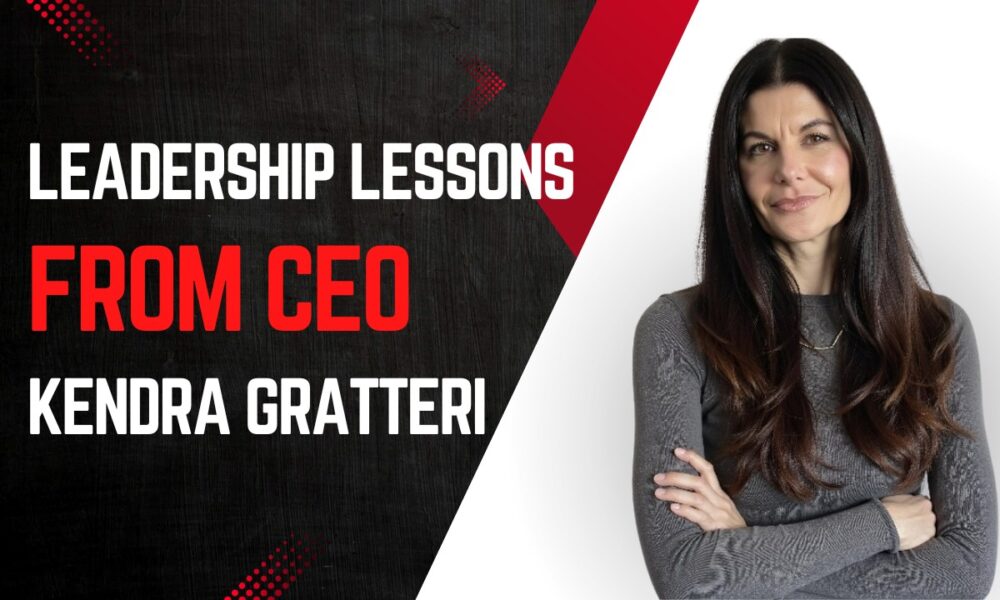Yves here. While this post gives an introduction to the problem of the magnitude of currency swaps, I suspect readers will find it a bit frustrating because it raises more questions than it answers. I feel I should provide far more than I do in this intro, but it is a big topic to address properly, so I hope to keep chipping away at it over time.
Some initial observations:
First, the size of the dollar-related swaps market belies the idea that the dollar is going to be displaced all that soon.
Second, and not to sound Pollyannish, but there was a lot of currency volatility last year, yet nothing blew up. That may be due to dumb luck. But also recall that the Bank of International Settlements has been a Cassandra. It first flagged rapidly rising housing prices and related increases in lending as a risk…in 2003.
Third, interviewer Paul Jay keeps pushing on the idea that shouldn’t this activity be regulated? Wellie, it never has been and I don’t see how you can put that genie in the bottle. Foreign exchange trading has always been over the counter.
And non-US banks are regulated not by the US but by their home country under what is called the “home host” practice. So it is France’s job to see that French banks fly right, even when they are trading dollars and other non-Eurozone currencies. If a French bank gets in trouble, even on its dollar exposures, it is France that has to bail them out or put it down. That is why, during the financial crisis, when French and even much more so German banks bought a lot of bad US subprime debt and CDOs and then had a lot of losses, they needed dollar funding to cover the holes in their dollar book (as in no one would provide them with short-term dollar funding to keep funding these dollar assets and no one would buy them at any reasonable price if they had tried to sell them). But the ECB could only lend dollars to these Eurobanks, which would not solve this funding problem. So the Fed opened up big currency swap lines with the major central banks. These central banks then swapped to get dollars so they could provide emergency dollar funding to their banks.
Again, this is just skimming the surface of this issue. Hope to return to it in the not-too-distant future.
By Paul Jay. Originally published at theAnalysis.news
Podcast: Play in new window | Download | Embed
Subscribe Apple Podcasts | Spotify | Android | iHeartRadio | Stitcher | Blubrry | Email | TuneIn | Deezer | RSS
Paul Jay
Hi, I’m Paul Jay. Welcome to theAnalysis.news. In a few seconds, I’ll be back with Rob Johnson to talk about a ticking time bomb in the global financial system. Be back in just a few seconds. Please don’t forget the donate button at the top of the website, and subscribe on YouTube. Most importantly, come to the website and get on our email list, and I’ll be back, as I said.
I hate to be the bearer of more bad news, but there’s a story that appeared in the Business Press but received almost no attention in mass media. I think capitalism is in chaos and is out of solutions. If the climate crisis wasn’t enough to convince you, here’s another example.
Bloomberg reports, “there’s a hidden risk deep inside the global financial system, embedded within $65 trillion of “dollar debt” held by non-U.S. institutions via currency derivatives, according to the Bank of International Settlements.” Okay, if you don’t know what all that means, we’re going to get into that soon. Just know all this could affect our lives in dire ways.
Now, back to Bloomberg. “Banks headquartered outside the U.S. carry $39 trillion of this debt— more than double their on-balance sheet obligations and ten times their capital. Shadow banks— otherwise known as non-bank financial intermediaries— have increased their dollar swap and forward liabilities to $26 trillion, which is twice the size of their on-balance-sheet debts.”
I’m going to take a crack at interpreting this. Dollar swaps are when– say, a non-U.S. pension fund, corporation, or bank needs to do a transaction in U.S. dollars but holds Euros; they agree to do a currency swap with a partner who holds U.S. dollars and wants Euros. These can be of enormous size– hundreds of millions of dollars, sometimes swapping overnight or in just a matter of a few days, but it can also be longer. Sounds reasonable. But wait a minute. Now we’re going back to Bloomberg again.
“Non-US banks have almost $40 trillion of hidden dollar liabilities from FX swaps and forwards, nearly three-times their recorded dollar debt. Accounting conventions only require derivatives to be booked on a net basis, so the full extent of the cash involved isn’t recorded on a balance sheet. This is what’s keeping the BIS up at night.”
Reuters reports, “the $80 trillion-plus hidden debt…” that’s even more than Bloomberg said, “… $80 trillion-plus [“hidden”] debt estimate exceeds the stocks of dollar Treasury bills, repo and commercial paper combined, the BIS said.” Again, what does all this financial gobbledygook mean? Well, in short, there could be a ticking time bomb in the global financial system that could trigger a crash, something similar to 2007 and 2008. That means millions of people around the world are falling further into despair, losing homes and losing jobs– a devastating effect for all of us ordinary folk who have little to no knowledge of what’s going on in the financial sector.
Now, joining us to make sense of all this is Rob Johnson. Rob is the President of the Institute for New Economic Thinking [INET]. In his multi-faceted life and career, he was, at one point, Chief Economist of the Senate Banking Committee at the time of the ’87 stock market crash in the savings and loan crisis. He is also known as the man who helped George Soros [Hungarian-American businessman and philanthropist] and Stanley Druckenmiller [American investor] break the bank of England; that’s a whole other story– you can look it up. He now fights for the regulation of the financial system, as Rob says,” in ways to have the financial sector generate economic growth, balance and limit predatory value extraction,” which ain’t happening much now. Alright, thanks for joining me, Rob.
Robert Johnson
Yes, it’s my pleasure. This is, how would I say, an important and treacherous domain that you want to explore.
Paul Jay
So, Rob, all this stuff is so complex that people not involved, and I suspect a lot of this complexity is deliberate, so people not involved don’t understand it. If it wasn’t for a few articles in the Financial Press, nobody would even know of this BIS report. How dangerous is this warning?
Robert Johnson
Well, a number of things come to mind. First of all, I want to encourage people to get better acquainted with the Bank for International Settlements. The various people there, Bob McCauley, Hyun Shin, and others, are at a multilateral institution in a time of globalization, and they are studying the fault lines and flaws in the system. Whether it be in the old days, how the Asian companies all borrowed dollars and then brought the money into renminbis so they could have a U.S.-China crisis, as they had in 2015, or what we might call swaps and forwards mismatch, they’re talking about now. They look for the vulnerable, the weak links, or the fault lines in the system.
Paul Jay
How dangerous is this warning?
Robert Johnson
Well, I think the scale that we’re talking about, the $39 trillion, etc. tells you that if something slips, like if you step on the banana peel– what they talk about in their report is the central banks will then all have to come in and open the spigots. In other words, if there’s a dollar shortage and it creates a frenzy, they’re going to have to supply the dollars to put out the fire. What that comes down to is what I have referred to in the work I’ve done on finance as the ‘mother of all moral hazards’. If you know the central bank can see the big institutions creating something that’s dangerous for the whole world, the central bank has no choice– what we might call an organ of public policy– but to try to put out the fire. But if you know they’ll put out the fire, you may take more risk knowing you’re going to get underpinned. What we need is a system where they’re there to rescue, but they also have the capacity to evaluate these institutions, have proper reporting of their positions, and which you might call impose prior restraint.
Paul Jay
Okay, just for a second before we get further into this, just so people understand the dynamic here. If a Japanese company wants, I don’t know, Canadian dollars, say, and some other company, bank, financial institution, or pension fund has Canadian dollars but wants Yen, they can do a swap, and eventually, they will resolve this swap, and this money doesn’t go on the balance sheet until the whole transaction is completed. At any rate, it all sounds relatively benign. Why is it dangerous?
Robert Johnson
Well, if you’re saying all of these institutions are fine in terms of their balance sheet, integrity, and so forth, and they’ve made a deal to go from dollars into yen, and 30 days from now, come back out, the difference between the price today and the price 30 days from now depends upon the interest you’d earn– what they call interest rate arbitrage. Let’s say the U.S. has a 3% interest rate and another country, say Italy, has a 6% interest rate, so if you borrow dollars and then invest in Italian lira, you’re going to borrow at 3% and earn at 6%. Then when you close it out, there is an anticipation in what’s called covered interest parity– these are technical terms. If the Italian lira is going to pay you 3%, let’s just say over a year, if they’re going to pay you 3% over a year more than what you borrow for dollars, the exchange rate is going to depreciate by 3%, meaning the dollar lira currency rate, and so that the net, it’s an even deal. You can either be in dollars and earn 3%, or you can be in lira, and earn 6% with a 3% depreciation. If that’s all a closed system, and there’s no solvency risk on either side, and everybody honors the contract, then it’s fine.
Now we move to some of the peculiarities. For instance, not every country, and not every country’s borrowers are as high integrity as others. So a country like Germany or a country like the United States may, or Switzerland might have a more solid financial system than some of emerging Asia, Latin America, or other places. When you engage in these contracts, if the borrowers who are borrowing dollars and are supposed to repay start to have fear of default risk over that one-year horizon that I used hypothetically, it could be three months or one month, then they may not come back and repay and retire the debt. In other words, the hole that’s created by the fear of bankruptcy or insolvency of institutions is what you might call a void that must be filled to protect the quality of credit. If these are small numbers and short-term things, they don’t tend to be as dangerous, or if everybody is considered properly monitored and regulated, so all of the financial institutions who are engaged have enough capital set aside, which you might call a safety buffer, then everything can balance out. If it’s all done on a small scale, it doesn’t have systemic effects. But when you have tens of trillions of dollars spread across a world system that has very different qualities of regulation and integrity of financial institutions, the BIS is warning us that if something collapses in one place or another, the ability to honor the roundtrip contract it will be suspect, which will lead to speculation on it blowing up, which will exacerbate the blow-up. In other words, some smart people will see, say, on a Ukraine crisis where a country that’s very dependent upon oil, their balance of payments will deteriorate, and then can they finance things, etc. In other words, financial speculators are smart, and when there’s a fault line, if it’s getting bigger, they put more pressure on it.
Paul Jay
So it can become, like, in the midst of a moment of crisis that might even be triggered by something else, like what happened in ’07 and ’08, subprime or something like the fall of Lehman Brothers, one crisis can trigger the other. This gets triggered, and because it’s on such an enormous scale, there’s no way to evaluate just how risky it is because we actually don’t have a handle on how much off the books there is.
I think one document, maybe it was the BIS report, said the amount of outstanding off-the-book debt and the debt on the books if you combine it all it is like equal to the whole global GDP. The numbers are staggering.
Robert Johnson
Yeah, let me take you back in history a little bit. Enron appeared to be a very successful corporation, and they created things off balance sheet called special purpose vehicles. They did a lot of their transactions there, in what you might call hid their losses there, so their holding company looked like it was very profitable, and their stock looked like a good investment. But when those off-balance sheets, special purpose vehicles, were revealed, then the whole picture changed, suddenly.
In the 2008-2010 crisis, what they call the Great Financial Crisis, many of the big bank holding companies had lots of special purpose vehicles, which had big holdings of derivatives in other countries and other places that were not disclosed to the regulators. So let’s talk about it. You allow structures where people can hide their position, you’re creating the potential for danger. If you don’t allow regulators to impose what I’ll call capital requirements on each position you take, then the system is more fragile and more risky. The first thing you need is proper disclosure of what positions you have, and the second thing you need is an understanding that the regulatory authorities can put that safety cushion requirement on you while you go out and play in the private markets.
What the BIS is alluding to here is we’ve got undisclosed and hidden positions, potentially on a very high scale, and we have not got uniform global regulations. This is what I will call the examination, the scrutiny, the enforcement, and the requirements of capital are not uniform. Then obviously, the world can have events that economists refer to as shocking the system, which suddenly changes the perspective. Then people go into a bit of a frightened frenzy because if they don’t know what positions their counterparties really have, they get scared, become more cautious, everybody runs to safety, and it widens these fault lines and leads to what you might call the propagation of fear and the propagation of damage. That’s what draws the central banks and finance ministries in to bail out these guys, and like the 2008 crisis in the United States, as Joe Stiglitz once famously said, “the polluters got paid.” Then you go through a crisis where the people who were reckless are the people we’re using our public funds to support, and we’re not building healthcare systems, we’re not building education systems. We’re using our fiscal capacity to subsidize gamblers, and the demoralization is fierce.
Steve Bannon once said, “if it hadn’t been for those bailouts in the Great Financial Crisis..,” his father was hurt by that. He was a linesman for, I believe, AT&T. Bannon said, “when his father lost his pension, all kinds of people became so despondent about the governance of America that it’s what led to the Tea Party, Occupy Wall Street, a Republican House, Republican Senate, and his guy Donald Trump becoming the President of the United States. A repeat performance like that right now would be even more dangerous, given the skepticism about expertise and elites that we all face. This is a very, very dangerous environment, which you might call an environment of skepticism about whether governance is working for the people or not. The authoritarian alternative is not an attractive one.
Paul Jay
So if I understand this whole process correctly, if a Canadian bank is, say, trading dollars for yen with a Japanese bank, they actually have to go through the U.S. dollar before they complete the trade because of the U.S. dollar’s dominating role, and it’s the reserve currency. In the final analysis, all of this architecture, and all roads lead through the U.S. financial system. So it’s really up to the U.S. regulatory authorities to deal with this. It seems like they’re not. Well, that’s the hub for all this. I assume Congress is really the one that is supposedly passing regulatory legislation, but they haven’t even taken on their own banks, never mind all this global financial activity in any serious regulatory way.
Robert Johnson
Well, I want to qualify it just a little bit. We have a parable that was once called the Treaty of Westphalia, which is about how a nation-state is structured and who’s responsible. We now have what we call globalization; what you might call the domain of the sovereign is much smaller than the scope of the marketplace in which people act. The dollar is used, not just for the American economy, it’s used in transactions between, say, Korea and China or between Canada and Europe. You referred to an intermediate step because everybody goes into dollars and then out to the next thing. If they get through some surprise or shock called the place, they can retire, and their exposure is back into dollars. There’s not a big, what I’ll call a cross-currency market between the Canadian dollar and the Spanish peseta. But what are you going to do? You’re going to basically, maybe peseta into euro, euro into dollars, and dollars into Canadian dollars, because every one of those pairs has more liquidity and breadth of market depth than the straight across from the Spanish currency, which they largely use the Euro now. I probably would have made a better example if I said something like the Brazilian currency would come through dollars or an Asian currency would come– how would I say?
There have been some initiatives. There’s a famous initiative called the Chiang Mai Initiative where the Chinese were reflecting a desire not to have everything triangle through the dollar. They could do things between the renminbi and the, say, Malaysian ringgit or Thai baht, and they would have an Asian system like there was an entry European system before the Euro where the Deutschemark and French francs and all things worked in a coherent system. We’re in a place right now where in addition to it not just being America and America’s responsibility, there are dollar things going on between governments over which the American people and the American government have no authority. What we’ve tried to create in Bretton Woods, World Bank, IMF, and other things are what you might call multilateral institutions, which at least create cooperation and collaboration and minimize these dangers from what you might call reckless things that use the currency from a country that’s not really involved in the transaction. The scale of what you’re seeing is now huge.
Paul Jay
So what should the regulations be, and who should be regulating this? Is it the Fed? Is it Congress? If it’s Congress, well, forget about it because Congress, especially this Congress coming, isn’t going to do much banking regulation.
Robert Johnson
What I would say is that leadership in the world financial system should probably be what you might call taken to the table of the G-20. When these fault lines, these potential dangerous– I’m not saying existing positions are dangerous. I’m saying when you have a systemic recognition, like the Bank for International Settlements, the BIS Report, they should take that to the head table of the G-20 and say, “how are we going to work this out? This doesn’t look healthy.” It looks like the remnants of playing nation-state games with welcome to wild and woolly offshore games from globalization, and we don’t have a coherent monetary system. If it does break down, the consequences will flow back into all these nations. There’s, how you say, a collective danger from playing in all these little pockets that have side effects that are not being what you might call put on the head table. That’s why I think the BIS warning is an excellent one. It’s saying this isn’t some little funny thing going on at a Las Vegas hotel. This is trillions of dollars in a world system with the hedge funds, insurance companies, and pension funds all involved. The wealth and the well-being of citizens in many parts of the world can be damaged severely if we don’t make this system coherent.
Paul Jay
Well, given the tension now between the two biggest economies in the world, U.S. and China, what are the chances of that getting negotiated? Shouldn’t the U.S. just unilaterally regulate all this, given it’s the U.S. that manages global finance?
Robert Johnson
Well, I guess if the United States benefits from being a world reserve currency, in other words, the United States, for a long time, has been running big deficits and funding them with people holding U.S. dollar-denominated government bonds. That was what you might call one of the privileges associated with a U.S. bond; a government bond which is called a store of value, which will be properly managed, properly regulated, etc., in its home country. So if you’re sitting in Korea and you got extra money, where’s the place you can put the money where you know when you need it, you can get it back, and nobody’s going to have done craziness or monkey business with it.
So there is competition among the reserve currency countries for which you might call transparency, liquidity, and integrity of the system that makes holding that store of value much more attractive. Now we’re in a place where people can play with the American currency offshore, and the United States can’t stop them. On the other hand, they don’t necessarily want them to go be in the renminbi, Russian rubles, or whatever. I think the United States and Europe have had an amicable interaction where the euro, the dollar, and for that matter, the Japanese yen, have worked well in a trilateral system. I don’t think what will very shortly, if not already, be the largest economy in the world, which is China; they do not have a convertible exchange rate or enough experience with the supervision, regulation, and integrity of financial regulation to qualify as a reserve currency for international purposes.
Paul Jay
Not yet, but aren’t we getting into a period where people don’t trust the United States to play that global management role? Everyone has acknowledged the U.S. benefits from it. Everybody acknowledges the U.S. benefits from being the reserve currency, but they go along with it because the U.S. does manage this system. In times of crisis, the Fed does put lots of liquidity into the system and not just to American banks. In ’07-’08, the Fed put money into European banks, even non-American corporations.
Robert Johnson
Well, I think there are concerns of that sort, and there’s also this kind of anxiety that– how would I say this? The United States is being induced to unlock and let the cash flow out of the central bank and build bubbles. Some of the pain that we’re going through right now is that in the time of the Ukraine war, the U.S.-China breakdown, and so forth, the momentum of good news was off. All of those induced the opening of the spigot by the United States to keep the system coherent on the up ramp going back to 2006, and now, which you might call the bear market in housing and stocks is creating pain.
You could say, “well, why didn’t the Federal Reserve– Governor [Colin] Powell and his team are acting very hawkish, and we’re going to keep raising rates.” A lot of people are saying, “well, the labor share of GDP is nothing like it was when Paul Volcker [Former Chair of the Federal Reserve of the United States] was putting the hammer down.” Yes, you have an oil shock from Ukraine like in the ’70s, you had an oil shock from OPEC, but you’re now crushing the people who’ve been struggling, which you might say the sophisticated billionaires got off the train and dumped the Nasdaq.
In other words, why don’t we have a more gentle growth of the economy and, corresponding to its growth of the stock market’s value as opposed to this whipsaw that goes up and down based on floods of liquidity and then, oh my god, inflation and trashing of it. We’re creating a system that has induced extreme volatility. When you have induced extreme volatility, sophisticated people who can pay lots of money to hire financiers can get out of harm’s way and watch everybody else get trashed. What we’ve seen with the tremendous intensification of the concentrations of wealth in the United States and around the world is that the strong get stronger by maybe even being short in the stock market while the broad population gets compressed and compressed or goes through the ups and downs of volatility. It’s creating a further sense of injustice, not a re-equilibration or balancing of society as it’s structured now.
Paul Jay
Why would anyone trust the U.S. anymore and be willing to accept that deal? Yeah, you manage the system; we’ll help subsidize you, including subsidizing all your damn military expenditure, even your juicing of the American stock market. Let’s not forget, when it comes to volatility, it’s not that the rich just get out of the way of the consequences of most of that volatility; they know how to make even more riches out of volatility.
Robert Johnson
Yeah, I would say there are people who are professional in the realm of what I’ll call a two-way street in the markets, and they got to surf a big wave up from 2010 to essentially the end of the pandemic, but we’re now back in choppy water. Part of the reason that boom went up so big and for so long was that a U.S. central bank kept trying to calm the waters and kept having to open the spigot every time there was distress in a dollar-denominated world system. The shocks may emanate from other places in the world. There’s a problem in Iowa or Texas, and we’re dealing with that. There may be a problem in the Middle East, Russia, or Southeast Asia, and it leads to violent transactions in dollar-denominated things like swaps or what have you, and the central bank has to come in and calm the waters in the United States because it’s the reserve currency. Or what they do is they often give allocations to the other central banks to go administer their local regions, where they’re more knowledgeable about the specific firms immersed in the stress of the crisis. But nonetheless, the flood of dollars and then the drying up of dollars is related to the U.S. being at the center of that world system.
Paul Jay
Given the scale of this off-the-books jeopardy and other forms of derivative plays, which are also even bigger than the global GDP, is there a growing lack of confidence in the system? We saw in ’07-’08, the big banks wouldn’t even loan to each other because they didn’t believe each other’s balance sheets, because they knew how phony their balance sheet was. They assumed the other banks, and correctly assumed, their balance sheets were full of BS too. So is there enough capacity in the central banks to calm the waters? Does it get to a scale where there’s a meltdown of proportions we’ve never seen before?
Robert Johnson
I want to take it a little bit out of just the central bank, because in securities markets, you have things like the Securities and Exchange Commission Gary Gensler runs, or the place he used to run, Commodities Futures Trading, CFTC. I talked about providing liquidity, but I also talked about the examination, the setting standards for capital cushions, the safety standards, and so forth. Some of the other regulatory apparatus plays a role there.
There’s a very brilliant scholar at the University of Maryland who I’ve done a lot of work with over the years, Michael Greenberger, and he was at the CFTC when Gary Gensler ran it, and he engaged in proactive studies that really are worth looking at right now about the reporting of derivatives positions. There’s a very interesting story that underpins this. Let’s say London, Frankfurt, and New York are competing to be the world financial center’s hub. When they’re competing, they want more activity in their domain. By the way, people who invest in or own urban real estate in cities where high-powered finance takes place tend to benefit. So there’s a lot of collective social pressure to create an attractive environment for financiers so that your financial center attracts more activity, and more people, and the rising tide raises all boats in your region.
Now, why am I bringing this up? Because when you force people to disclose all their derivatives and maybe take a haircut for a little safety cushion, you’re creating a disincentive. So there’s a competition in laxity between the different centers around the world, and Michael Greenberger has shown how the non-reporting of derivatives is not a coincidence or just an intellectual error; it’s part of a system of understanding that laxity may attract things that you want in your domain, perhaps to the detriment of long term integrity of the financial system. There needs to be, if you will, level playing field on a global basis about the way derivatives are reported and how much cushion is set aside so that it’s not a place where you can gain an edge for your financial hub, say, New York relative to London, Frankfurt, Paris, Hong Kong, Tokyo, and Shanghai. Those incentives play a big role in what you might call refuting the desire for systemic integrity.
Paul Jay
I know, I’ve interviewed Greenberger a couple of times a few years ago. He was saying that the Commodity Future Trading Exchange, you know, they knew what needed to be done, and it wasn’t for lack of policy. They just couldn’t get enough people to staff the place, even in their own agency. Congress wasn’t funding them properly. You couldn’t get legislation passed that was actually effective regulation. It’s probably even worse now, which raises a fundamental systemic question. Is this model of capitalism even possible of creating a regulatory environment with some rationality? Because this concentration of economic power in the financial sector has given them such enormous political power. Who in Congress wants to take on the financial sector?
Robert Johnson
Right. To use Wall Street as a parable, but you could say London, or you could say Frankfurt; when you have very high proportion of income and wealth, and there are many scholars who’ve now studied this in its relation to the distribution of income and wealth, the big donors can influence who gets appointed, what kind of laws and regulations are considered, how strong is the enforcement of existing laws and regulations. If you don’t like to have something enforced, you can start to tell congressmen and senators or the White House, using the United States as the example, we’re not going to hold fundraisers for you guys now, or maybe we’ll hold them for the other team that says we don’t need those things. They know how to stop strong enforcement of existing laws, they know how to stop new laws, they know how to repeal laws, and they know how to elect people or get people appointed who see things in a way that’s advantageous for their wallets.
Paul Jay
There are people who run for office who aren’t beholden to Wall Street and actually do want some real financial regulation, but their own leadership, the leadership of the Democratic Party doesn’t want these people to get elected and actively fights against them in primaries. But is that what we people need to do? Educate ourselves about some of these issues and then try to find candidates who are actually for some kind of action on this and organize and make this a demand in terms of developing and organizing a mass movement. The financial sector got a lot of attention in ’07-’08, but right now, they seem to just be getting off scot-free.
Robert Johnson
Yeah, I’m going to be a little bit fantasy-like for a moment. What we really need to do is collectively know that we have to reduce the role of money relative to the poles in our political system in order to take care of our population. What I mean by this is if you have public financing of elections, you could probably have smaller budget deficits because a lot of the stuff is [inaudible 00:39:21]. It’s done to induce campaign contributions. [inaudible 00:39:26] the population is going to put its tax money into public funding for the election, but you can’t [inaudible 00:39:37] donations. The [inaudible 00:39:38] might go down, and the deficit might be smaller, but the moment would be used. Secondly, you’ve got communication companies: radio, television, cable television, etc., they make a lot of money covering elections every two years in the United States. What if we said in order to get a charter, to be a communications company in America, you have to allocate public service announcements with time and not get paid for it by people are selling [inaudible 00:40:00] for cheap? In other words, there is a public service where the candidates get to speak, but they don’t have to pay for it like it’s advertising.
Paul Jay
There used to be legislation like that about equal opportunity in television during election campaigns, but I think it was Reagan who got rid of that.
Robert Johnson
I think, certainly, in the period from Richard Nixon on, it has disintegrated. I don’t follow the intimate history, but if you said to run for office, I don’t need to raise that much money; no one can raise that much money and use it, the public is paying for the budget, and it doesn’t cost so much to reach people and market it, then the value of voters goes up, and the value of money goes down.
Now, here’s the problem. How do you go to existing legislators and say you got to pass that because what they’re doing is, as incumbents, they’re preserving an advantage vis à vis challengers because they can sell policy and challengers can’t. So it might be a good idea, but I don’t know how that fantasy idea can be implemented. The idea of reducing the value of money might improve what you might call the vision of how to regulate a financial system or enforce antitrust or figure out how to work with these big communication monopolies that the digital age has spawned. There are all kinds of things where concentrated money shouldn’t be regulating itself. The systems are for the public as a whole, and if you allow money politics to play a big role, they won’t be designed or implemented for the broad well-being.
Paul Jay
Thanks a lot, Rob.
Robert Johnson
Thank you.
Paul Jay
Thanks, everybody, for joining us on theAnalysis.news. Please don’t forget the donate button on our website. There’s a link to it on YouTube. It’s the end of the year, and it practically is the end of the year; in fact, by the time you see this, we might already be in the next year. At any rate, in case you don’t know it, we are a 501 (c)(3) nonprofit in the U.S., which means if you donate to us, you get some kind of tax deduction. If you’re not in the U.S., we hope you’ll donate anyway. Thanks to everybody who’s been supporting us all through 2022, and before that. Bye-bye from everybody and best wishes, as we’re going to need them in 2023.





































